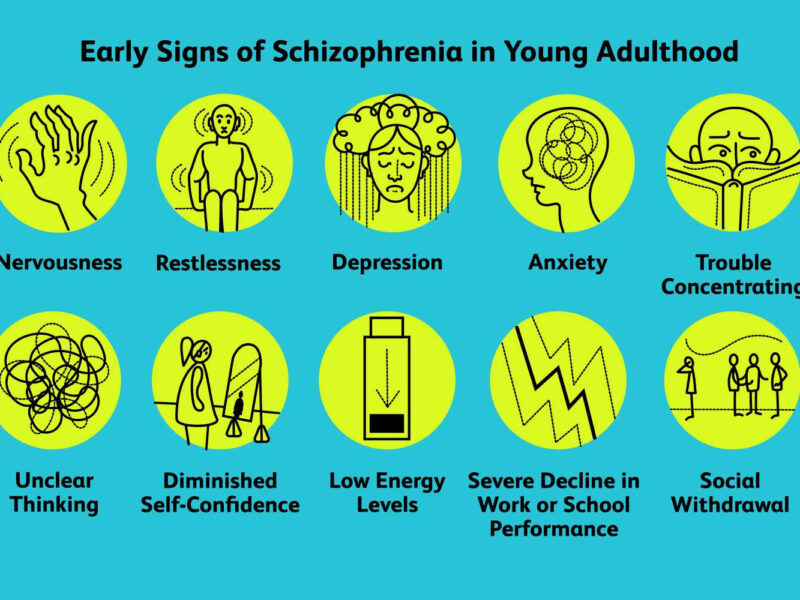Schizophrenia is a multifaceted and often debilitating mental disorder that affects approximately 1% of the global population. It is characterized by a diverse array of symptoms that profoundly impact an individual’s thoughts, emotions, perceptions, and behaviours.
Understanding the complexity of schizophrenia involves exploring its hallmark symptoms and the diagnostic criteria used by mental health professionals to identify and classify this challenging condition.
This article aims to delve into the intricate nature of schizophrenia, shedding light on its symptoms and diagnostic criteria to facilitate accurate diagnosis, effective treatment, and improved outcomes for individuals living with this disorder.
Introduction to Schizophrenia
Schizophrenia is a chronic and severe mental illness that typically manifests in late adolescence or early adulthood, although it can occur at any age. It is characterized by disturbances in thinking, perception, emotions, and behaviour, often leading to significant impairments in functioning and quality of life. Schizophrenia is not a single disorder but rather a spectrum of symptoms and presentations, making it a complex and challenging condition to diagnose and treat.
Hallmark Symptoms of Schizophrenia
Schizophrenia is characterized by a diverse range of symptoms that can be categorized into positive, negative, and cognitive domains. These symptoms vary in severity and presentation among individuals but collectively contribute to the complexity of the disorder.

Positive Symptoms
Positive symptoms of schizophrenia involve an excess or distortion of normal mental processes and may include:
- Hallucinations: Hallucinations are perceptual experiences that occur in the absence of external stimuli. The most common type of hallucination in schizophrenia is auditory hallucinations, where individuals hear voices or sounds that others do not perceive. Visual, tactile, olfactory, and gustatory hallucinations may also occur, albeit less frequently.
- Delusions: Delusions are fixed beliefs that are not based on reality and are resistant to change, despite evidence to the contrary. Common types of delusions in schizophrenia include paranoid delusions (belief that one is being persecuted or conspired against), grandiose delusions (belief in one’s exceptional abilities or importance), and delusions of reference (belief that ordinary events or objects have special significance).
Negative Symptoms
Negative symptoms of schizophrenia involve deficits or reductions in normal functioning and may include:
- Social Withdrawal: Social withdrawal refers to a decrease in social engagement, communication, and interpersonal relationships. Individuals with schizophrenia may become increasingly isolated, avoiding social interactions and preferring solitude. Social withdrawal can lead to loneliness, depression, and impaired social functioning.
- Reduced Emotional Expression: Reduced emotional expression, also known as blunted affect, refers to a decrease in the range and intensity of emotional expression. Individuals with schizophrenia may exhibit a flat or monotone voice, limited facial expressions, and a lack of emotional responsiveness in social interactions.
Cognitive Symptoms
Cognitive symptoms of schizophrenia involve impairments in cognitive processes such as attention, memory, executive function, and problem-solving. These symptoms may include:
- Impaired Attention: Individuals with schizophrenia may have difficulty focusing attention and maintaining concentration, leading to distractibility and poor task performance. Impaired attention can interfere with learning, work, and daily activities.
- Memory Deficits: Memory deficits are common in schizophrenia and may involve difficulties with both short-term and long-term memory. Individuals may have trouble remembering recent events, recalling information, and organizing thoughts coherently.
- Executive Dysfunction: Executive dysfunction refers to difficulties with planning, problem-solving, decision-making, and cognitive flexibility. Individuals with schizophrenia may struggle to set goals, initiate tasks, and adapt to changing demands.
Diagnostic Criteria for Schizophrenia
The diagnosis of schizophrenia is based on specific criteria outlined in the Diagnostic and Statistical Manual of Mental Disorders (DSM-5), published by the American Psychiatric Association. According to the DSM-5, the diagnostic criteria for schizophrenia include:
- Presence of two or more of the following symptoms for a significant portion of time during one month (or less if successfully treated): hallucinations, delusions, disorganized speech, grossly disorganized or catatonic behaviour, negative symptoms (e.g., diminished emotional expression or avolition).
- Significant impairment in social, occupational, or academic functioning.
- Duration of symptoms for at least six months, including at least one month of active-phase symptoms (i.e., presence of positive symptoms).
- Exclusion of other medical or psychiatric conditions that may better account for the symptoms.
- Disturbances are not attributable to the effects of substance use or medication, another medical condition, or a culturally sanctioned behaviour or experience.
Conclusion
Schizophrenia is a complex and multifaceted mental disorder characterized by a diverse array of symptoms that profoundly impact an individual’s thoughts, emotions, perceptions, and behaviours.
The hallmark symptoms of schizophrenia, including positive, negative, and cognitive symptoms, contribute to the complexity of the disorder and present unique challenges for diagnosis and treatment.
Understanding the diagnostic criteria outlined in the DSM-5 is essential for accurately identifying and classifying schizophrenia, facilitating early intervention, and providing appropriate treatment and support for individuals living with this debilitating condition. By unravelling the complexity of schizophrenia and addressing its symptoms and diagnostic criteria, we can improve outcomes and quality of life for those affected by this challenging disorder.










